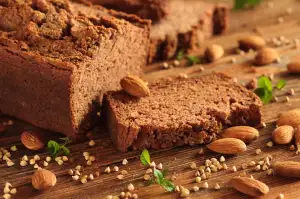Cracking the Code: Discover How Long Eggs Last and Maximize Freshness

Eggs are a staple in many kitchens, but have you ever wondered how long they actually last? Understanding the shelf life of eggs is crucial for ensuring their freshness and safety. Whether you're a home cook or a professional chef, knowing how to maximize the lifespan of your eggs can help you avoid waste and enjoy their deliciousness for longer. In this article, we will explore the factors that affect egg freshness, how to determine if an egg is still fresh, proper storage techniques, and tips for using eggs past their expiration date. So let's crack the code and discover how to make the most of your eggs' shelf life!
Factors affecting egg freshness and longevity
Factors affecting egg freshness and longevity include temperature, humidity, and handling. Eggs should be stored in a cool environment, ideally between 35-40°F (1.7-4.4°C), as higher temperatures can accelerate spoilage. Humidity levels should be moderate to prevent moisture loss or excessive condensation, which can degrade the quality of the eggs. Proper handling is crucial as rough handling can cause cracks or damage to the protective cuticle, increasing the risk of bacterial contamination. Additionally, eggs should be kept away from strong odors as they can absorb them easily, affecting their flavor and overall freshness.
How to determine if an egg is still fresh
To determine if an egg is still fresh, you can perform a simple test. Start by placing the egg in a bowl of water. If it sinks to the bottom and lays flat on its side, it is very fresh. If it stands upright on the bottom, it is still good to eat but not as fresh. However, if the egg floats to the top, it has gone bad and should be discarded. This floating occurs because as an egg ages, air enters through its porous shell, causing it to become buoyant. So remember, the water test is a quick and reliable way to check the freshness of your eggs before using them in your recipes.
Proper storage techniques to extend the life of eggs
Proper storage techniques are crucial to extend the life of eggs and maintain their freshness. The first step is to store eggs in their original carton, which helps protect them from absorbing odors and flavors from other foods in the refrigerator. It also helps to keep the eggs at a consistent temperature.
The ideal temperature for storing eggs is between 33°F (0.5°C) and 40°F (4°C). This means that the refrigerator is the best place to store them, rather than on the countertop or in a cupboard. Avoid storing eggs near strong-smelling foods such as onions or garlic, as they can easily absorb these odors.
Another important aspect of proper egg storage is keeping them away from moisture. Moisture can cause bacteria to grow on the shell, which can lead to spoilage. Therefore, it's essential to store eggs in a dry environment.
It's also important not to wash eggs before storing them. The natural protective coating on the shell helps prevent bacteria from entering through pores. Washing removes this protective coating and increases the risk of contamination.
Lastly, always handle eggs with clean hands and avoid dropping or shaking them excessively, as this can damage their structure and shorten their shelf life.
By following these proper storage techniques, you can maximize the freshness of your eggs and ensure they last longer for all your culinary adventures.
The average shelf life of eggs in different storage conditions
The average shelf life of eggs can vary depending on the storage conditions. When kept at room temperature, eggs typically last for about 2 weeks. However, refrigerating them can significantly extend their freshness, allowing them to remain good for up to 5 weeks. It's important to note that the temperature and humidity levels in your refrigerator can affect the longevity of eggs. Therefore, it is recommended to store them in their original carton on a shelf rather than in the door where temperatures fluctuate more. By understanding how different storage conditions impact egg freshness, you can maximize their shelf life and enjoy them longer.
Tips for using eggs past their expiration date
When it comes to using eggs past their expiration date, there are a few tips to keep in mind. First, always perform the float test. Fill a bowl with water and gently place the egg in it. If it sinks to the bottom and lays flat on its side, it is still fresh. If it stands upright or floats, it is no longer good to use.
If your eggs pass the float test but you're still unsure, crack them into a separate bowl before adding them to your recipe. This way, you can visually inspect for any signs of spoilage such as an off smell or unusual appearance.
Using older eggs may affect their texture and taste slightly, so they are best suited for recipes where they are cooked thoroughly, such as baking or scrambling. Avoid using them in dishes that require raw or lightly cooked eggs like homemade mayonnaise or meringue.
Remember that even though eggs may be safe to consume past their expiration date, they might not perform as well in certain culinary applications. Always trust your senses and exercise caution when using older eggs.
Safety precautions when consuming older eggs
While it is possible to use eggs past their expiration date, it is important to take certain safety precautions. As eggs age, the risk of bacterial contamination increases. To minimize this risk, it is crucial to follow these safety guidelines:
1. Perform the water test: Before using an older egg, place it in a bowl of water. If it floats, discard it immediately as it may be spoiled.
2. Check for signs of spoilage: Inspect the egg carefully for any unusual odors or discoloration. If you notice a rotten smell or a greenish hue, do not consume the egg.
3. Cook thoroughly: When using older eggs in recipes that require cooking, ensure they are cooked thoroughly to kill any potential bacteria.
4. Avoid raw or undercooked dishes: It is best to avoid consuming raw or undercooked dishes that contain older eggs, such as homemade mayonnaise or sunny-side-up eggs.
5. Store properly: Even if an egg is still within its shelf life, proper storage is essential to maintain freshness and reduce the risk of contamination.
By following these safety precautions, you can enjoy using older eggs while minimizing the chances of foodborne illnesses. Remember, always prioritize your health and well-being when consuming any food product.
In conclusion, understanding the shelf life of eggs is essential for maximizing freshness and ensuring food safety. By considering factors such as storage conditions, expiration dates, and proper handling techniques, you can extend the lifespan of your eggs.
Remember to always check for signs of freshness before using eggs, such as the float test or inspecting the appearance and smell. Proper storage in a cool refrigerator at temperatures below 45°F (7°C) can significantly prolong their freshness.
While it's best to consume eggs within their recommended shelf life, they can still be used past their expiration date if handled with caution. Cooking them thoroughly and avoiding raw consumption reduces the risk of foodborne illnesses.
By following these guidelines, you can crack the code on egg freshness and enjoy delicious meals while minimizing waste. So go ahead and make the most of your eggs' shelf life – your taste buds and wallet will thank you!
Published: 26. 11. 2023
Category: Food



